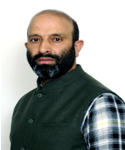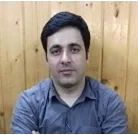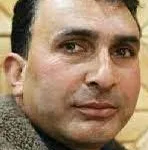THE IAS DREAM
The UPSC Civil Services Examination is a dream for many, but for thousands, it becomes an unrelenting trap. Every year, approximately 10 to 12 lakh candidates apply, yet only about 1,000 succeed, resulting in a mere 0.1% selection rate.
Many aspirants dedicate five to seven years—or even longer—to this pursuit. They quit jobs, defer higher education, and put their lives on hold, only to face repeated rejections. Often, they follow this path due to family pressure or societal expectations that glorify the UPSC as the ultimate achievement.
These aspirants spend their prime years—typically their 20s—not building careers or exploring life, but trapped in an endless cycle of coaching classes, study notes, and self-doubt. By the time they give up, many are deemed “over aged” for other competitive exams, while private employers dismiss them for lacking relevant experience. While the UPSC can transform lives, it also silently destroys many. For some, it becomes a one-way road with no return.
Ulfat’s Story: A Father’s Dream, A Daughter’s Sacrifice
This is the story of Ulfat Jaan, a woman in her 30s from Sopore village. For her, the IAS was never her own dream—it was her father’s. “Khair, family ki khushi hai,” she reasoned, burying her own aspirations to fulfill her parents’ wishes.
Like countless middle-class families across India, Ulfat’s parents saw the IAS as the ultimate achievement. After suppressing her own desires for years, she finally began preparing for the exam. For her family, it was a source of pride, happiness, and hope—a vision of their daughter in the “colorful glory” of success.
With relentless effort, Ulfat dedicated herself to the UPSC journey—dawn to dusk, sacrificing sleep, joy, and peace. Her first attempt was fueled by equal parts determination and doubt How will the exam be? Can I crack it? Yet, despite a year of grueling preparation, the result was not in her favor.
Her father had spared no expense—monetary or emotional—yet success remained elusive. But the story didn’t end there. Encouraged by her family, she tried again. This time, amid turmoil in Kashmir, her parents sent her to Jammu for a “peaceful environment” to study. She pushed harder, sacrificing sleep, health, and happiness—only to fail once more.
With each attempt, her family’s dreams crumbled, and Ulfat slipped deeper into despair. She lost precious years, her mental health deteriorated, and the weight of unmet expectations haunted her: Why couldn’t I make it? Why did I fail my parents?
She spent months in isolation, grappling with a whirlwind of emotions. For many aspirants, failing this exam is not just about a test—it encompasses deep personal feelings tied to family expectations and years of preparation.
What happens to those, like Ulfat, who never succeed? How do they navigate the emotional maze of setbacks, self-doubt, and lost opportunities?
With each failure, Ulfat Jaan felt her family’s dreams crumble. She lost precious years that could have been spent pursuing her own ambitions. Depression set in, and guilt consumed her for failing to meet her parents’ expectations. Eventually, her parents urged her to move on. Broken but resigned, she pursued further education, yet she remained haunted by what could have been.
After completing her education, Ulfat sought employment—any job—to keep herself occupied. Her father ensured she lacked nothing despite financial constraints. Yet, even in the private sector, she struggled to make ends meet. At this crossroads, she questions whether she will ever see a brighter future.
Even today, when UPSC results are announced, she relives her past disappointments. She struggles to face her father without guilt. Despite failed attempts and health struggles, she refuses to surrender completely. Unlike many who give up after one setback, Ulfat Jaan persisted. Her journey reflects the struggles of countless individuals crushed under societal pressures and familial expectations.
Failure in the UPSC is not just a professional setback—it is deeply personal. Many candidates sacrifice their social lives, careers, and health. The emotional aftermath can be devastating, with depression, insomnia, and isolation frequently reported. These experiences highlight the intense psychological pressure faced by aspirants and underscore the need for a strong support system.
This is a plea to every parent: Don’t let your dreams overshadow your child’s. Let them live their own life, chase their own aspirations. Stand by them, not over them. Because in the end, a child’s happiness should matter more than any prestige.
The UPSC remains one of India’s toughest exams—a crucible where, out of over a million aspirants, only about a thousand succeed. For many, like Ulfat, the journey ends without a selection letter.
And the pressing question remains when will we stop measuring worth based on an examination?
(Author is a storyteller and journalist and can be reached at: [email protected])








